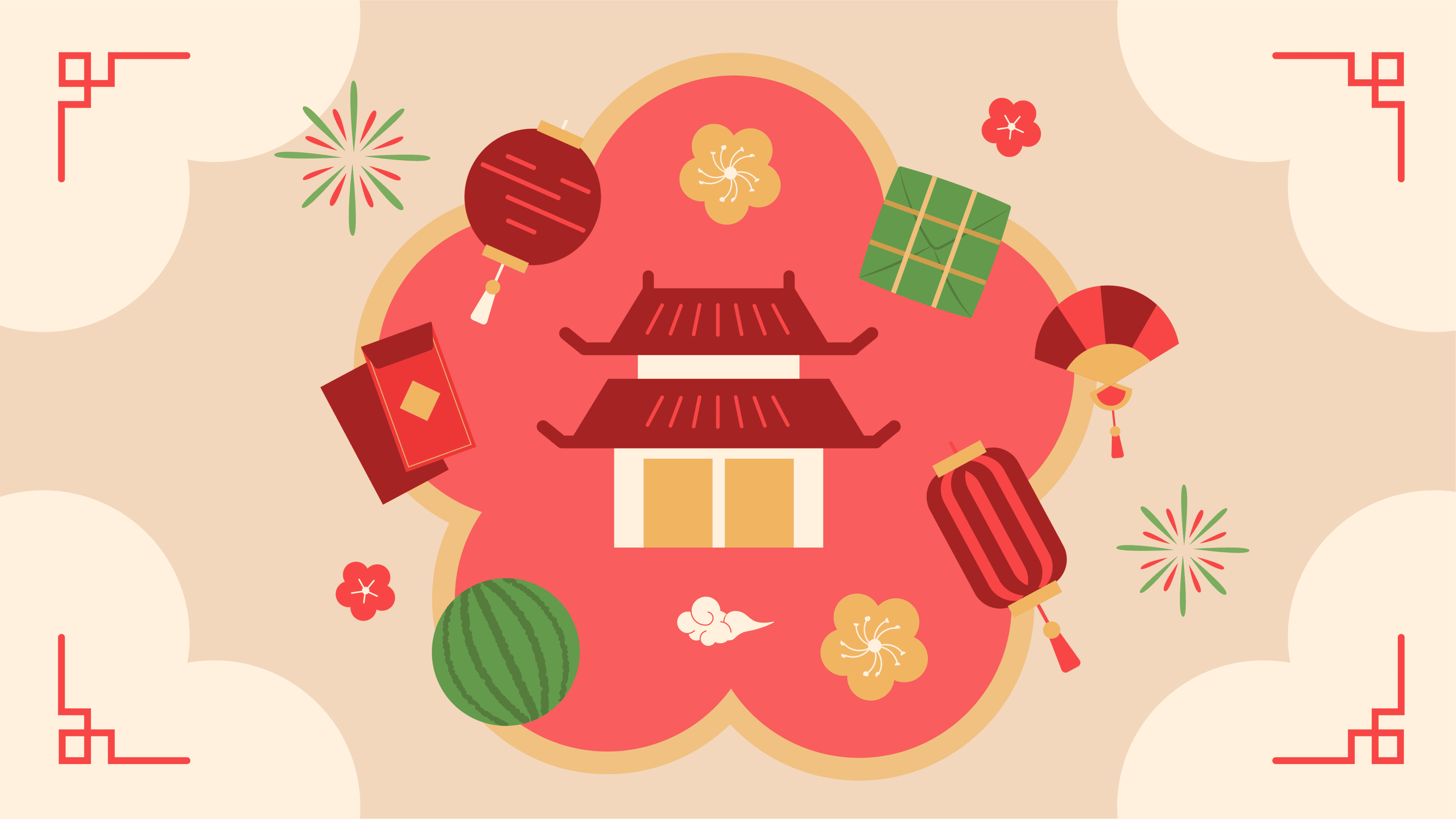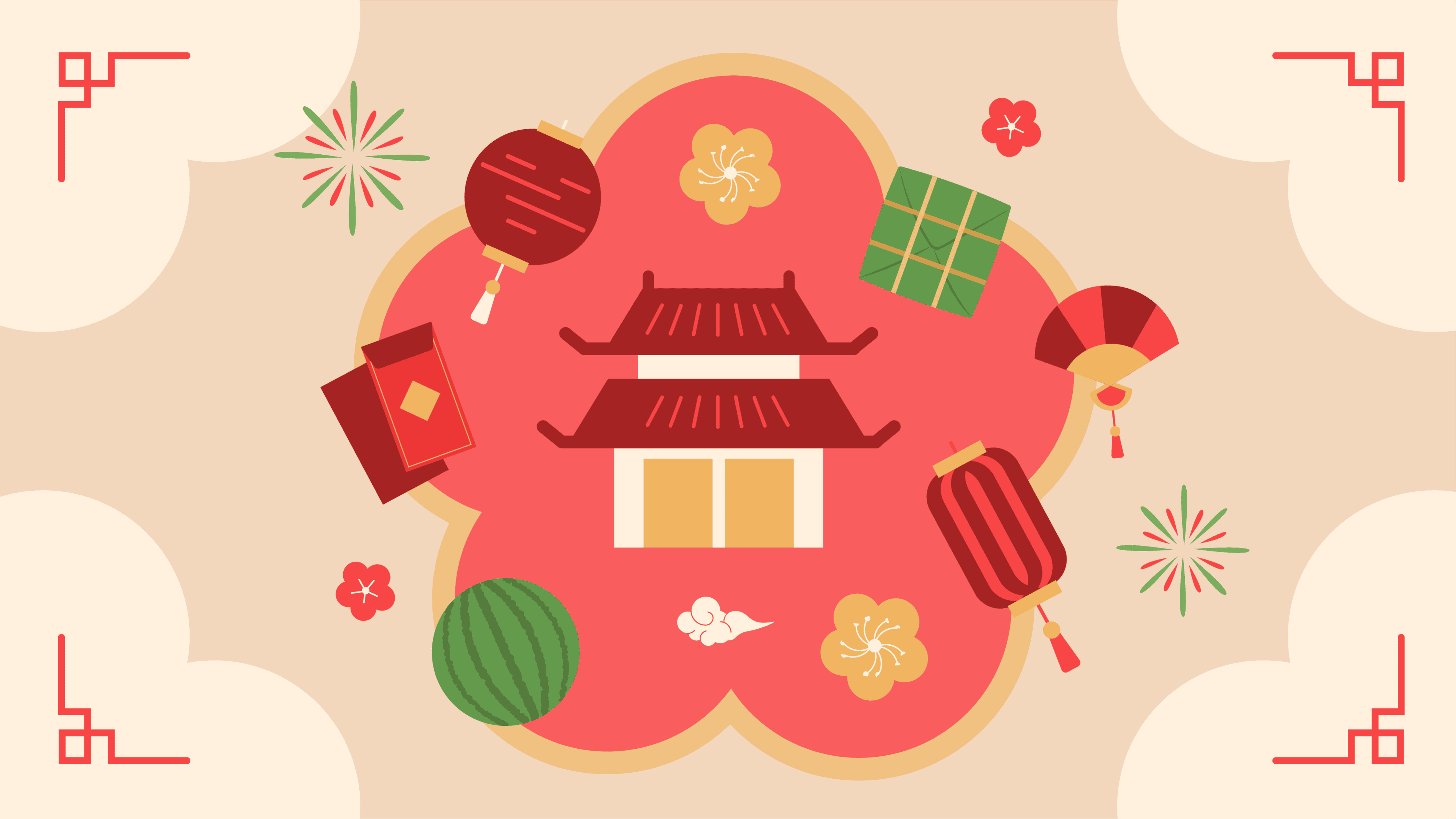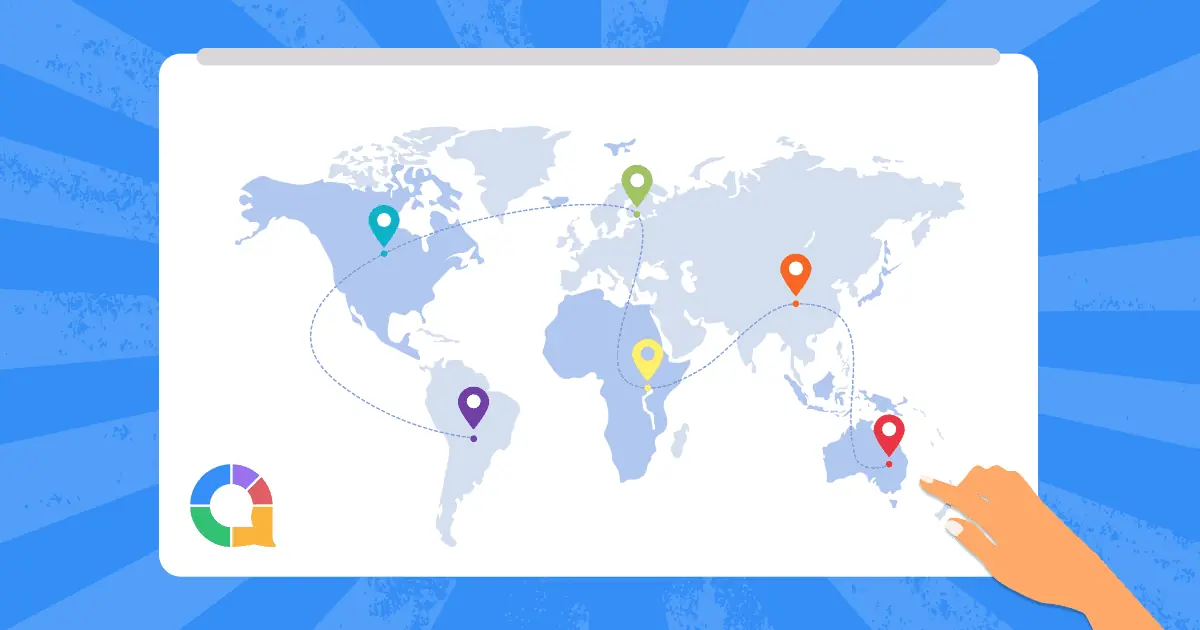Chinese New Year Quiz (CNY)? Did you know over 1/4 of the world's population follows the lunar calendar? How many of them have played a Chinese New Year quiz before?
It's an often overlooked event in trivia, but we're here to set that right.
Here are 20 questions for hosting the ultimate Chinese New Year quiz (or Lunar New Year quiz).
Table of Contents
- How Chinese New Year is Celebrated
- 20 Questions & Answers for a Chinese New Year Quiz
- Tips for Hosting a Chinese New Year Quiz
- Why Use Free Live Quiz Software?
Tips for Better Funs during Holidays
Free Chinese New Year Quiz!
Get all the questions below on cost-free live quiz software. Take it and host it within 1 minute!
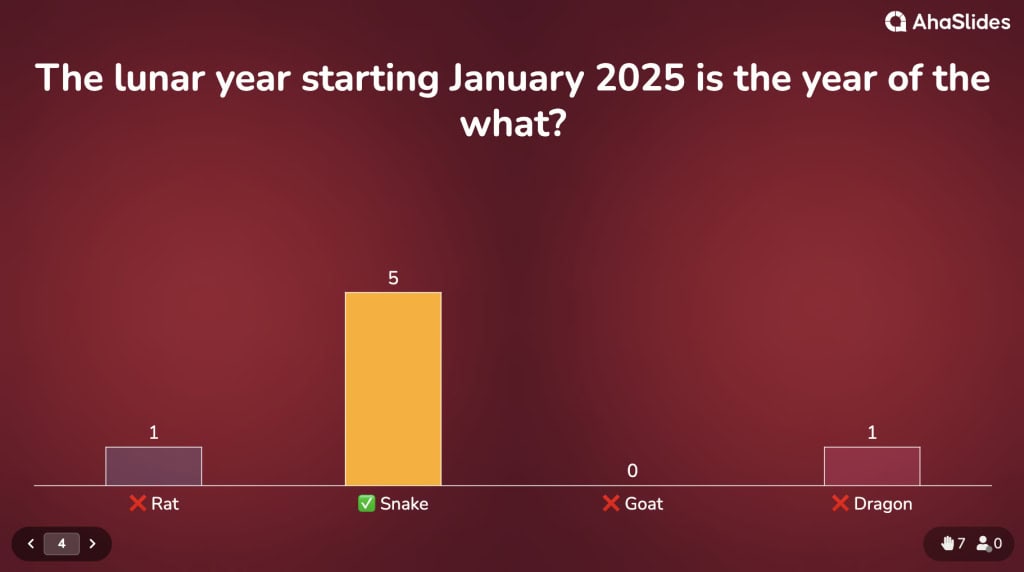
Using Spinner Wheel to Organise Lunar New Year Trivia Questions
First, let's choose a round to play! You can also create your own question wheel using the AhaSlides Spinner Wheel!
How Chinese New Year is Celebrated
The Chinese Lunar New Year, also known as Spring Festival, is one of the most important holidays in Chinese culture.
During this time, Chinese people and communities worldwide celebrate with colourful traditions like lighting firecrackers to ward off bad vibes, exchanging red envelopes containing money for luck, cleaning their homes, gathering with family and wishing loved ones a prosperous year ahead.
Diverse types of special foods are also enjoyed throughout the celebration depending on the region you're in. Dragon dances and the New Year's celebration live show are a must if you are from the Chinese community.
20 Chinese New Year Trivia Questions and Answers
Here are 20 Chinese New Year quiz questions split into 4 distinct rounds. Make them part of any New Year's quiz!
Round 1: Chinese Zodiac Quiz
- Which 3 are NOT animals of the Chinese zodiac?
Horse// Goat // Bear // Ox // Dog // Giraffe // Lion // Pig - Lunar New Year 2025 is the year of the what?
Rat // Tiger // Goat // Snake - The 5 elements of the Chinese zodiac are water, wood, earth, fire and… what?
Metal - In some cultures, what zodiac animal replaces the goat?
Deer // Llama // Sheep // Parrot - If 2025 is the Year of the Snake, what is the order of the following 4 years?
Rooster (4) // Horse (1) // Goat (2) // Monkey (3)
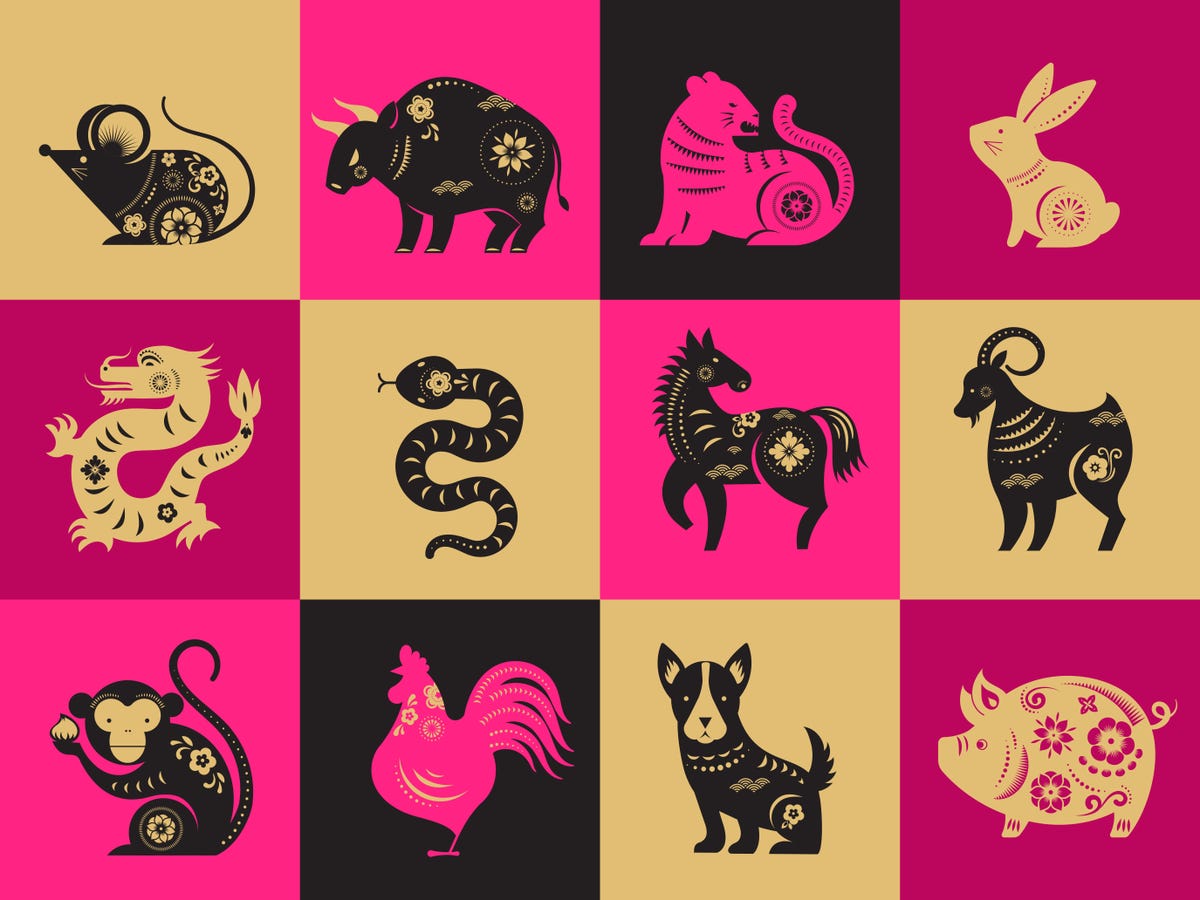
Round 2: New Year Traditions
- In most countries, it is traditional to remove bad luck before the Lunar New Year by doing what?
Sweeping the house // Washing the dog // Lighting incense // Donating to charity - What colour of the envelope would you expect to see at Lunar New Year?
Green // Yellow // Purple // Red - Match the country to the name of its Lunar New Year
Vietnam (Tết) // Korea (Seollal) // Mongolia (Tsagaan Sar) - How many days does the Lunar New Year in China typically last?
5 // 10 // 15 // 20 - The final day of the Lunar New Year in China is known as the Shangyuan Festival, which is the festival of what?
Lucky money // Rice // Lanterns // Oxen
Round 3: New Year Food
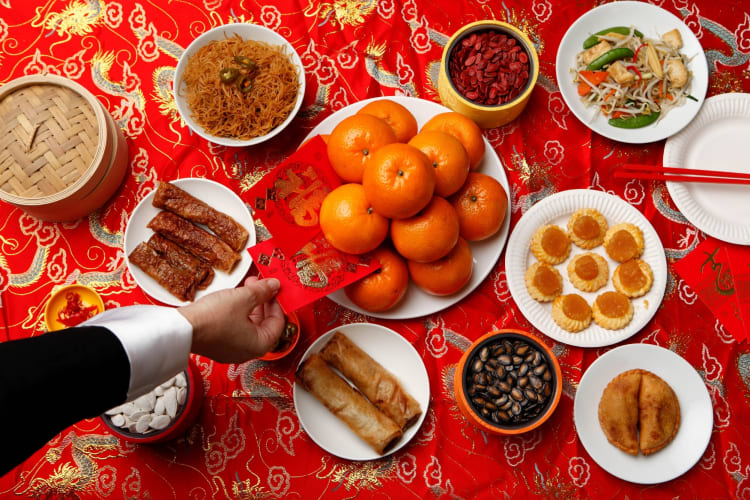
- Which country or territory celebrates Lunar New Year with 'bánh chưng'?
Cambodia // Myanmar // The Philippines // Vietnam - Which country or territory celebrates Lunar New Year with 'tteokguk'?
Malaysia // Indonesia // South Korea // Brunei - Which country or territory celebrates Lunar New Year with 'ul boov'?
Mongolia // Japan // North Korea // Uzbekistan - Which country or territory celebrates Lunar New Year with 'guthuk'?
Taiwan // Thailand // Tibet // Laos - Which country or territory celebrates Lunar New Year with 'jiǎo zi'?
China // Nepal // Myanmar // Bhutan - What are the 8 Chinese foods? (Anhui, Cantonese, Fujian, Hunan, Jiangsu, Shandong, Szechuan and Zhejiang)
Round 4: New Year Legends and Gods
- The heavenly emperor who rules over Lunar New Year is named after which gemstone?
Ruby // Jade // Sapphire // Onyx - According to legend, how were the 12 zodiac animals first decided?
A game of chess // An eating competition // A race // A water right - In China, which of these is used to scare off the legendary beast 'Nian' on the day of the new year?
Drums // Firecrackers // Dragon dances // Peach blossom trees - It's traditional to leave 'zào táng' out in the house in order to appease which god?
Kitchen God // Balcony God // Living Room God // Bedroom God - The 7th day of the Lunar New Year is 'ren ri' (人日). Legend says it's the birthday of which creature?
Goats // Humans // Dragons // Monkeys
💡Want to create a quiz but have a very short time? It's easy! 👉 Just type your question, and AhaSlides’ AI will write the answers:
Trivia for Any Occasion...
Check out our free-to-play quizzes. Host them so your friends can play live on their phones!
Tips for Hosting a Chinese New Year Quiz
- Keep it diverse - Remember, it's not just China that celebrates Lunar New Year. Include questions about other countries in your quiz, such as South Korea, Vietnam and Mongolia. There are hugely interesting questions to be pulled from each!
- Be sure about your stories - Stories and legends tend to transform over time; there's always another version of each Lunar New Year story. Do some research and make sure that the version of the story in your Chinese New Year quiz is well-known.
- Make it varied - It's always best, if possible, to split your quiz into a set of rounds, each carrying a different theme. One random question after the next can be draining after a while, but a set amount of questions within 4 differently themed rounds keeps the engagement high.
- Try different question formats - Another great way to keep engagement high is to use different question types. The standard multiple choice or open-ended question loses its lustre after the 50th repetition, so try some image questions, audio questions, matching pair questions and correct order questions to switch it up!
Why Use Free Live Quiz Software?
1. It's free!
The clue's in the title, really. Most live quiz software is free, and while popular platforms like Kahoot, Mentimeter and others are extremely limited in their free offerings, AhaSlides allows up to and including 50 players to play along live for free.
If you're after more room for players, you can get it for as little as $2.95 a month.
💡 Check out the AhaSlides pricing page for more details.
2. It's minimum effort
You'll find dozens of free, ready-made quizzes in our template library, meaning you don't have to lift a finger if you're after something quick and easy to use like the Chinese New Year quiz above. Just click here to create a free account and check out the hundreds of questions on offer in the template library.

Not only is it minimum effort to create a quiz, but it's also minimum effort to host it. Say goodbye to the days of getting teams to mark each others' scores, to hoping that there are no technical issues with the pub's ancient speaker and to forgetting to mark the bonus picture round before announcing the final score - with live quiz software, all the effort is done for you.
3. It's super convenient
Live quiz software just needs two things - a laptop for the host and a phone for each of the players. The pen-and-paper method is so pre-lockdown!
Not only that, but it opens up a whole new possibility for virtual quizzes. Your players can join from anywhere in the world via a unique code, then follow along with the quiz as you present it over Zoom or any other online conference software.
4. It's fully customisable
Once you've taken your free quiz from the library, you can change it in any way you want. Here are a few ideas....
- Make it a team quiz
- Award more points for faster answers
- Turn on the quiz lobby and leaderboard music
- Allow live chat during a quiz
Aside from the 6 quiz slides, there are 13 other slides on AhaSlides to use for gathering opinions and voting on ideas.
💡 Create your own live quiz for free. Check the video below to see how!
Frequently Asked Questions
When is Chinese New Year 2025 celebrated?
The Chinese New Year 2025 is celebrated on Wed, January 29, 2025. It's the Year of the Snake.
Who celebrated Chinese New Year?
Chinese New Year is most strongly observed by ethnic Chinese groups worldwide, as well as in China, but aspects of the celebrations have also been integrated to some degree into the cultures of other Asian countries and have even piqued global curiosity in recent times.
How does China celebrate the new year?
Chinese people often celebrate the New Year with cleaning, red decorations, reunion dinners, fireworks and firecrackers, new clothes, money gifting, visiting elders and lantern festival.
